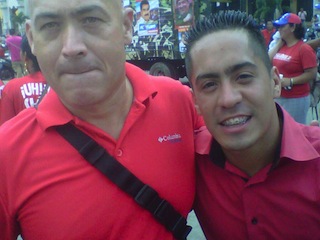VENEZUELA NEWS — A bloody clash between police and militant collectives in Caracas may feed suspicions that the collectives played a role in the recent dramatic murder of a Venezuelan Congressman, and raises the specter of more violence ahead as the investigation into the murder continues.

The gunfight reportedly broke out as police were attempting to raid a house located along a central Venezuelan highway. Five members of two militant collectives, known as the 5th of March (5 de Marzo) and Shield of the Revolution (Escudo de la Revolucion), were left dead, including two collective leaders. The brother of one of these leaders said the victim, Jose Odreman, was shot 40 times, reported El Nacional.
El Nacional reported that residents of the building where the shootout took place said that there was no “confrontation” with police: the officials had killed the members of the collective without being fired at first. The national police agency, CICPC, said that those killed were “criminals.”
The head of Venezuela’s national police agency said that the raid was not connected to investigations into the death of Congressman Robert Serra, reported El Nacional. Serra was the youngest member of Congress and a star of the ruling socialist party, until he was found bludgeoned and stabbed to death in his home on October 1.
InSight Crime reported last week that Serra was believed to have ties to the various militant collectives that operate in Caracas. Odreman, the collective leader slain in the recent raid, had published a photo of himself alongside Serra on Twitter about a month before Serra’s death (see image above).
Some of these militant collectives began forming in Caracas’ poorer, outer neighborhoods as early as the 1970s in response to the lack of proper policing. Under President Hugo Chavez’s government, many collectives began receiving weapons and training from the state. Today, the collectives by and large support the “Bolivarian Revolution,” and several of them were accused of participating in violent attacks against protesters earlier this year, in close collaboration with security forces.
This recent confrontation with the collectives may be akin to stirring up a hornet’s nest. According to El Nacional, the 5th of March collective was a coalition of 100 smaller collectives. Those that are armed may yet react aggressively to the death of their leader. The government also risks alienating those in the communities that support the collectives, as many view the collectives as the most reliable local security force to protect them from criminals.
Source: InSight Crime Analysis













